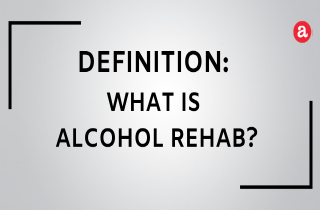Alcohol rehab is the process that occurs when a person who has used alcohol excessively or abused alcohol discontinues their use with the goal of remaining permanently abstinent. The treatment process includes detoxification, rehab, and maintenance of sobriety. Each stage is critically important to remain sober for an extended period of time. Medications can be used in alcohol rehab, however it is not recommended that a patient rely on medications. A comprehensive strategy and relapse prevention plan is strongly recommended for continued sobriety. In this article we explain what is alcohol rehab like and what you can expect during the rehabilitation process, so continue reading.
Alcohol rehab goals
1. End alcohol abuse
2. Improve overall health
3. Treat underlying mental health issues
4. Integrate into society to live a productive life
There are several goals of alcohol rehab goals. One of the first and most important goals of alcohol rehab is to end alcohol abuse. This goal will be achieved by making personal and interpersonal changes in order to remain abstinent from alcohol use. The next goal is to improve overall health, which is a goal that can be achieved when you end your alcohol use. Alcohol rehab aims to better your overall health when you successfully end alcohol abuse.
Another alcohol rehab goal is to treat psychiatric disorders and psychological problems. Often, when alcohol has been abused for a significant amount of time, the patient will have psychological trauma or psychiatric disorders that have stemmed from abuse or previous events. When you discontinue use and enter a rehab facility these issues may cause a potential relapse or further cravings. Alcohol rehab aims to treat these psychological problems in order to secure a chance at remaining sober in the future.
The last alcohol rehab goal is related social intergration: meeting employment and educational needs, reducing criminal behavior and resolving legal problems and improving personal circumstances. These goals aim to give the patient a positive future and set them up for success outside of the program.
What happens during alcohol rehab?
There are six basic phases of alcohol rehab. Inpatient alcohol rehab generally takes about 28-30 days to complete, although programs can last from 3-6 weeks. Each stage builds upon earlier stages. Completion of alcohol rehab is strongly advised, and leads to more successful outcomes and less frequent relapse. So, how does the process unfold and what happens during alcohol rehab treatment?
1. Alcohol dependence assessment – Upon entering alcohol rehab, staff will assess your personal situation. They need to know about your level of physical and mental dependence on alcohol in order to create a program that is unique to you. Alcohol screening and assessment likely include a drug test, a psychological screening and an assessment of personal circumstances. The aim here is to understand the extent of alcohol abuse and to create a program that will allow you to succeed.
2. Medical detox from alcohol – The detox process will begin 3-5 hours after the last drink, but will oftentimes not require anything more than medical supervision. In extreme cases, medication may be necessary, especially if you have been drinking excessively for long periods of time or have experienced seizures or delerium tremens during past alcohol withdrawals. However, in most cases, medical staff will only need to monitor you to ensure safety as alcohol leaves your system.
3. Psychological alcoholism treatment – This is one of the most important phases of alcohol rehab, as it begins to give you a base for future sobriety. The purpose of psychological treatment for alcohol problems is to analyze and change your mental and emotional condition towards positive, healthy states. Not only does psychotherapy address former patterns, trauma, and behaviors, it can enhance quality of life and help prevent relapse.
4. Phamacotherapy – Medicatins for alcohol dependence are emerging and becoming valuable tools used during alcohol rehab. Some medications help stabilize mood, while others address alcohol cravings. Still other medications make you sick should you pick up a drink. These types of pharmaceutical treatments will be assessed and prescribed on an individual basis and will be implemented along with psychosocial treatment.
5. Education – Education about the cycle of addiction is important during alcohol rehab, as it aims to give you information about alcoholism and alcohol abuse. Knowing more about the patterned and conditioned brain can help you stop the cycle of abuse.
6. Supportive services – Alcohol rehab support services aim to empower a patient to seek services outside of treatment in order to maintain abstinence from alcohol and begin to create a network of supportive people to influence in the patients life. Support services can include educational, employment/job training, housing assistance, and life skills services.
What happens after alcohol rehab?
After alcohol rehab, you are mostly left on your own to continue the path of recovery. Alcohol rehabs encourage continued alcoholism counseling in the months and year that follow rehab completion. In fact, it is extremely important that you continue to seek services that will allow you to maintain constant sobriety. This can include Alcoholics Anonymous, SMART recovery or another community or church group that you can be a part of, and begin to create a positive support group. There are also services, like sober living houses, that can give you a safe environment to live in while entering back in to the normal realm of every day life.









Related Posts